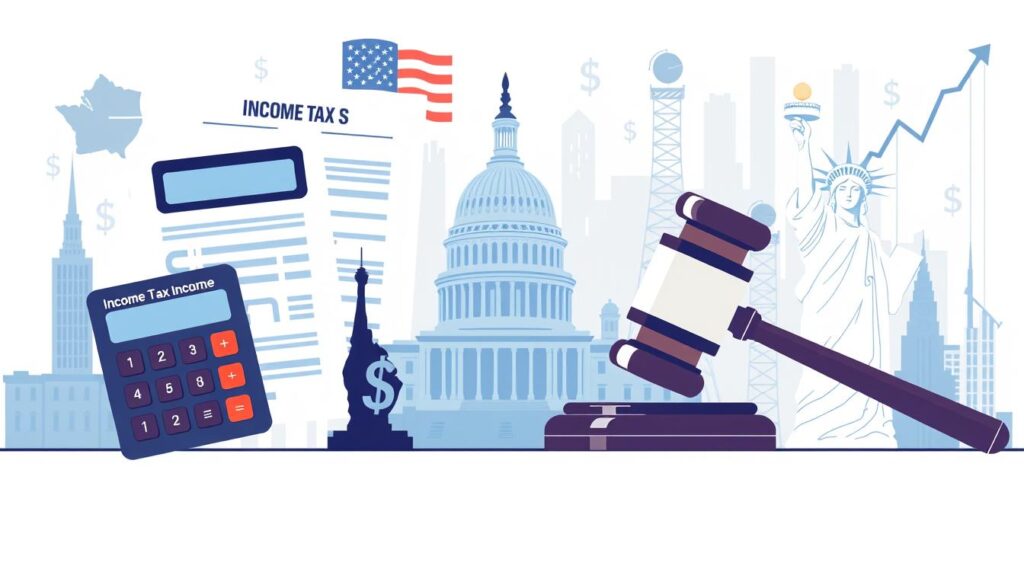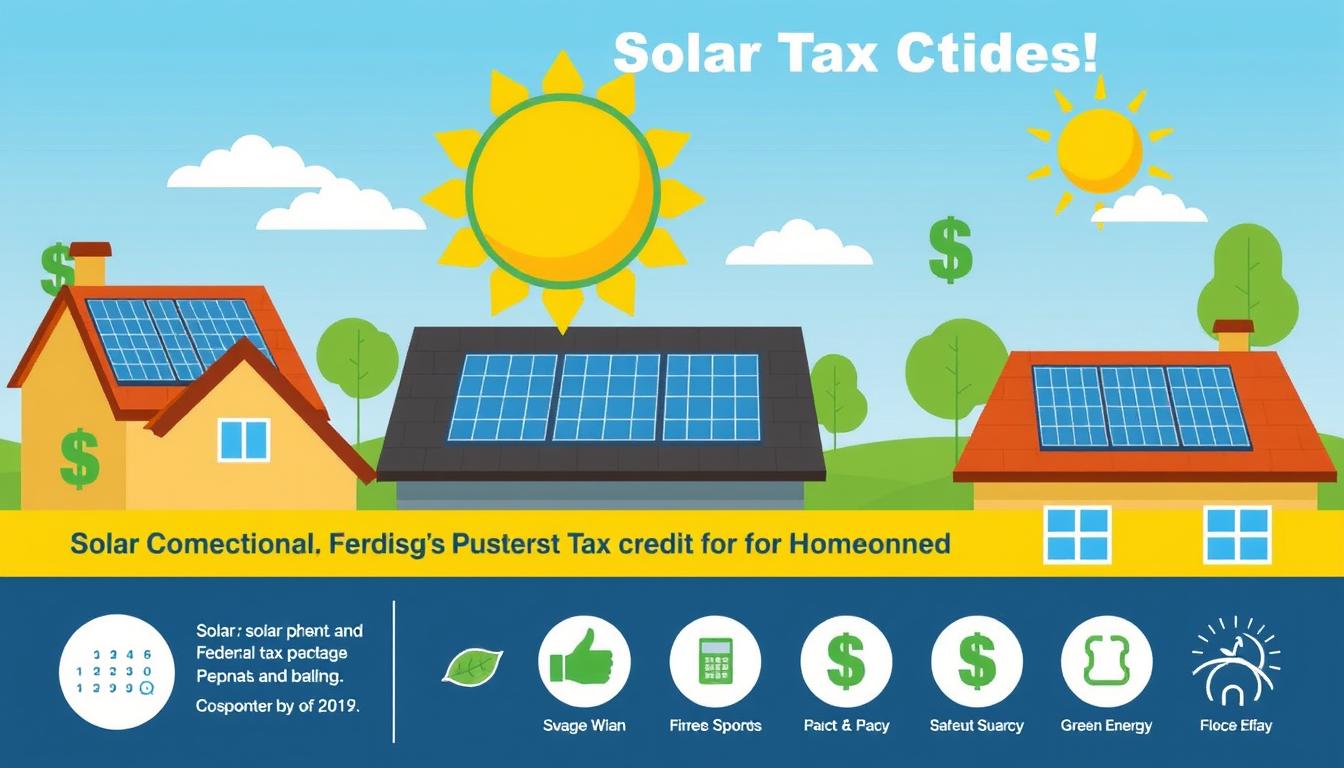Did you know nearly 80% of US taxpayers can use IRS Free File for their tax returns? This service is for those making $79,000 or less. It’s a great way to make filing taxes easier1. The deadline to file is April 15, 2024, for most people. But, if you live in Maine or Massachusetts, you get until April 171. This guide will help you understand how to file correctly and might help you get a bigger refund.
This guide will give you handy tips, tell you which documents you need, and explain tax breaks you could get. We want to make filing taxes easy and help you feel ready to do it yourself. Knowing what to do can make filing your taxes simple. This guide is great for first-timers or those who want to save more on their taxes.
Key Takeaways
- Understand the importance of IRS Free File for eligible taxpayers.
- Be aware of the key filing deadlines and special circumstances affecting your return.
- Gather essential documents such as W-2s and 1099s before filing.
- Explore available tax credits and deductions to maximize your refund.
- Consider using tax preparation software for a more efficient filing experience.
- Stay informed about changes in tax laws that could impact your filing.
- Seek help from IRS-certified volunteers if needed, especially if your income is below a certain threshold.
Understanding the Basics of US Income Tax
Understanding US income tax is key for all taxpayers. The federal income tax is a major way the government gets money. It pays for things like the army, schools, and hospitals2. Taxes are figured out based on how much of your earnings can be taxed. Knowing this helps you understand how much tax you owe each year.
The way federal income tax works is that the more money you make, the higher tax rate you pay. In 2023, there are seven tax rates, from 10% to 37%. If you’re single and make over $578,125, you pay the highest rate3. Every year, tax brackets are adjusted to keep up with inflation. This stops your taxes from going up just because prices do3.
When it’s time to do your taxes, you might use Form W-4. This form helps figure out tax deductions for your paycheck2. For earned wages, employers use Form W-2 to show taxes taken out. If you work for yourself, you use Form 1099-NEC2. Knowing these forms is crucial because they affect your taxable income and how much tax you owe.
It’s also important to understand different tax rates. For example, the alternative minimum tax (AMT) has rates of 26% and 28%4. Taxes can be complex because of different layers like this. Since 2018, the highest personal income tax rate is 37%. This was set by the Tax Cuts and Jobs Act after rates changed a lot over time4. Knowing these details helps you figure out how much you need to pay in taxes.
Overall, getting to know these tax concepts and how they’re connected will help you manage the US income tax system well.
Do You Need to File Your Taxes?
Filing taxes can be tricky due to different filing requirements. Most people living and working in the U.S. need to file. You have to file if your income is above certain income thresholds. These limits depend on your age and if you’re single or have a family. For instance, if you’re single and under 65 in 2024, you need to file if you make more than $14,600. For heads of household under 65, that number is $19,4005. Sometimes, you might need to file even if your income is below these numbers.
Income Thresholds for Filing
There are different income levels that require you to file taxes. In 2024, if you’re single and under 65, you must file if your income is over $14,600. Married couples under 65 filing together need more than $25,9006 to file. If you work for yourself, you’ll need to file if you make more than $400.
| Filing Status | Age | Income Threshold |
|---|---|---|
| Single | Under 65 | $14,600 |
| Head of Household | Under 65 | $19,400 |
| Married Filing Jointly | Under 65 | $25,900 |
Special Circumstances for Filing
Sometimes, filing taxes can be a good idea even with low income. This allows you to get refunds or credits. Special tax situations may involve earning money from self-employment or big stock gains. Filing can help you get money back like the Earned Income Tax Credit or Child Tax Credit6. Also, if you had taxes taken out of your pay, filing might get you a refund7.

Gathering Your Tax Documents
Before you start your taxes, make sure to collect all your important tax documents. These documents are vital. They ensure your tax filing is complete and correct.
Essential Documents for Filing
Tax season needs you to have several key documents ready, such as:
- W-2 forms: Employers give these out by Jan. 31. They show your earnings and taxes taken out.
- 1099 forms: You get different kinds like 1099-MISC and 1099-NEC between Jan. 31 and mid-February. They report various incomes8
- Prior year tax returns: These are useful for this year’s filing.
For deductions, gather receipts for childcare, mortgage payments, and charity donations9. Self-employed folks should keep bank and expense receipts. These help claim deductions and credits, lower your taxes.
Organizing Your Financial Information
Getting your financial documents in order makes tax filing easier. Here are some tips to organize:
- Sort documents by type: Put W-2s, 1099s, receipts, and past returns in different groups.
- Use folders or digital tools: Keep everything in designated folders for quick access.
- Double-check completeness: Make sure you have all the needed forms, especially for income and deductions.
Good organization cuts down on stress and saves time. It helps you accurately report income and expenses. This is key to avoid tax return problems8.

Exploring Tax Credits and Deductions
Getting to know different tax credits and deductions can really help when you do your taxes. These options can lower what you owe in taxes, leaving you with more cash.
Common Tax Credits Available
There are several important tax credits that can reduce how much you pay in taxes. For example, the Child Tax Credit (CTC) gives up to $2,000 for each child under 17 to caregivers. They can also get an extra refund of $1,500 per child with the Additional Child Tax Credit (ACTC)10. The Earned Income Tax Credit (EITC) starts at $600 for those with lower to middle incomes, and it can be more if you have dependents10.
The American Opportunity Tax Credit (AOTC) can give up to $2,500 for school costs10. Also, buying new electric vehicles might get you a clean vehicle tax credit up to $7,50010. These credits not only help your wallet but also encourage smart choices like going to school and choosing eco-friendly options.
Understanding Deductions and Their Impact
Tax deductions are critical for lowering your taxable income. For 2023, the basic deduction is $13,850 for single filers and $27,700 if you’re married and file together11. You might be able to deduct things like alimony payments, IRA contributions, student loan interest, and costs for teachers11.
Some itemized deductions can include your home mortgage interest and gifts to charity11. Knowing your deductions can deeply affect your tax bill and bring major savings.

| Tax Credit/Deduction | Description | Maximum Amount |
|---|---|---|
| Child Tax Credit (CTC) | Credit for caregivers with children under 17 | $2,000 per child |
| Earned Income Tax Credit (EITC) | Credit for low to moderate income earners | Minimum $600 |
| American Opportunity Tax Credit (AOTC) | Credit for educational costs | Up to $2,500 |
| Standard Deduction | Standard amount deducted from taxable income | $13,850 (single), $27,700 (married) |
| Clean Vehicle Tax Credit | Credit for purchasing electric vehicles | Up to $7,500 (new vehicles) |
Using your tax credits and deductions well can turn filing taxes into a winning situation for you1110.
Steps to Prepare Your Tax Return
Getting your taxes ready might feel tough, but you can make it easier with a few steps. First, know the different tax forms to pick the right one for you.
Selecting the Right Tax Form
It’s crucial to choose the correct tax form for reporting income and deductions accurately. There are several to be aware of:
- Form 1040: Used by most individual taxpayers.
- Form 1040-SR: Designed for seniors, featuring larger print and a simpler layout.
- Form 1040-NR: For non-resident aliens.
Make sure you give true details, like full names and Social Security numbers for everyone on your return. This helps the IRS12 process your return without errors. Self-employed folks might need to add 1099 forms like 1099-NEC and 1099-K12.
Using Tax Preparation Software
Tax preparation software can make doing your taxes much easier. It helps you file accurately and quickly. The IRS Free File is free for eligible people13. Military members can use MilTax for tools made just for them13.
These programs can find deductions and credits for you. This can really lower what you owe. Keep your receipts and records tidy to put in the right details12.
To wrap up, whether dealing with tax forms or tax preparation software, do things step by step for a smooth tax process. If things get tough, think about talking to a tax pro13.

Income Tax in the United States: Key Considerations
It’s vital to know how the US tax system works to meet your tax duties. In the US, both residents and citizens must report all income. This income can be from within the country or from abroad14. This rule makes sure everyone is treated fairly in the tax system. Since US residents pay the same tax rates as citizens, it’s crucial to prepare14.
Knowing important tax deadlines is also key. You have to file Form 1040 or Form 1040-SR by April 15th the next year. If you live outside the US, you get 2 more months to file, until June 15. You can also ask for an extension to October 15 with Form 486814. Filing late or paying less can lead to penalties, making things more complex.
There are ways to make handling taxes easier. You can use Schedule A of Form 1040 or Form 1040-SR to claim deductions14. Knowing about state and local taxes is important too because the rates differ and impact your total taxes15.
- Stay updated with the latest changes in tax law to minimize potential surprises.
- Consult tax professionals when necessary to guide you through complex situations.
- Always file your taxes on time to avoid any unnecessary penalties.

| Income Tax Obligation | Filing Requirements | Potential Penalties |
|---|---|---|
| U.S. residents report all income | File Form 1040 or Form 1040-SR by April 15 | Late filing penalties apply |
| Subject to graduated tax rates | Automatic extensions available for overseas residents | Underpayment penalties possible |
| State and local taxes vary | Itemized or standard deductions allowed | Varies by state law |
Being ahead of your tax considerations helps when it’s time to file. Learn about your tax duties to smoothly navigate the US tax system1415.
Filing Your Tax Return
When you file your tax return, you can choose how to do it. You might decide between e-filing and paper filing. Both ways have their own benefits.
E-filing vs. Paper Filing
E-filing is quicker and more streamlined than paper filing. If you e-file and choose direct deposit, the IRS can get your refund to you in about 21 days. But if you go for a paper check, it could take 4 to 6 weeks16. E-filing also leads to fewer errors on your returns. It’s great for those who like doing taxes themselves, thanks to many software options.
Filing with an IRS Free File Partner
The IRS Free File program lets you e-file without any cost if you’re eligible. This helps over 100 million taxpayers file for free online16. It’s particularly good for those making $73,000 or less, offering free tools for doing it yourself16. Using IRS Free File makes preparing your taxes easier and saves you money.

How to Check the Status of Your Tax Refund
Knowing where your tax refund stands brings calm. To find out, the IRS’s “Where’s My Refund?” tool comes in handy. You can start checking 24 hours after e-filing17. Usually, if you opted for direct deposit, nine out of ten people get their refunds in 21 days for e-filed returns17.
Filed your taxes on paper, or need to amend them? Expect to wait four weeks for your refund17. Choosing to e-file can speed up getting your refund. It typically processes in 21 days18. And picking direct deposit means you get your money the fastest, cutting out any postal delays19.
At times, refunds may be delayed for additional checks or corrections18. If there’s an issue, don’t worry; you’ve got three years to claim your refund18. Plus, you can divide your refund into three different accounts. This makes managing your money easier18.
If it’s been more than the usual wait time, the IRS advises getting in touch. Do this if 21 days have passed since e-filing or six weeks since mailing a paper return17. There’s also an automated hotline for updates on your refund status or changes18.

Understanding the Tax Payment Process
Paying taxes can seem hard, but it gets easier if you know your options and what happens if you’re late. This part talks about how you can pay and what if you don’t pay on time.
Payment Options Available
You have many ways to pay your taxes. Here are some quick details on your choices:
- Direct Pay: Use the IRS website to pay straight from your bank account.
- Check or Money Order: Send a check or money order with your payment slip by mail.
- Installment Agreement: If it’s too much to pay all at once, you might set up a plan to pay over time with the IRS.
If you owe $1,000 or more when you file, you might need to make estimated tax payments during the year. Plan ahead to handle your taxes without stress20.
Understanding Penalties for Late Payments
Knowing about late payment penalties is key. If you don’t pay on time, you’ll face extra charges. Here’s what to know:
- Interest adds up on any tax you owe and wasn’t paid, which can make what you owe much larger.
- Late penalties begin at 0.5% of the unpaid tax each month, or part of a month, it’s not paid.
- If you keep not paying, the IRS might take serious steps, like taking your things.
By knowing these penalties, you can avoid them and make tax payments easier21.

What to Do If You Cannot Pay Your Taxes
If you can’t pay your taxes, don’t worry. Help is available to manage your tax debts. The IRS offers tax payment plans that let you pay over time. Getting advice from a tax professional can also guide you in your specific case.
Options for Payment Plans
The IRS has installment agreements if you owe $25,000 or less. You can pay off the debt within five years. To start, you must file Form 9465, “Installment Agreement Request.” There’s also a $43 setup fee22. Late payment fees are typically 0.5% of the due amount each month. This drops to 0.25% if you get an installment plan and filed your taxes on time22.
If you owe more than you can pay in five years, there are other options. An “offer in compromise” may let you settle for less than what you owe.
Seeking Professional Tax Help
Talking to a tax expert can be very helpful. Certified Public Accountants (CPAs) or Enrolled Agents can review your finances. They will help you find a solution with the IRS. In 2022, the IRS accepted about a third of all “offer in compromise” requests23.
While tax relief companies charge fees, some are more affordable than others. For instance, Community Tax has a low investigation phase fee of $295, the lowest among its peers23. Remember, getting professional help can be a wise choice to solve your tax issues.

Requesting an Extension for Filing
If you can’t meet the April deadline for your tax return, you might need an extension. This lets you delay your tax deadline by six months. Now, you’ll have until mid-October to file, which is super helpful if you need more time for your paperwork24.
Starting the IRS extension process is simple with a few options available. You can use tax software to file online, hire a tax preparer, or mail Form 4868 yourself. You can even ask for an extension when you pay online through IRS Direct Pay2524.
But remember, this extension doesn’t give you more time to pay your taxes; you still must pay by April 15. If you can’t pay all at once, the IRS has payment plans26.
For those living outside the US, you automatically get 2 more months to file. This helps manage taxes from afar2524. And don’t forget, some states may have their own deadlines. Make sure to check.

Tax Changes for the Current Year
Getting ready for tax season? Knowing this year’s changes is key. For 2025, the standard deduction for single filers and those married but filing separately will hit $15,000, up $400 from 202427. Married couples filing together get a boost too. Their standard deduction will jump to $30,000, which is $800 more than last year27. And, if you’re earning over $626,350, your tax rate stays at 37%27.
There’s more news for 2025. The Earned Income Tax Credit for folks with three or more kids is increasing to $8,046. That’s higher than last year’s $7,83027. Not married? The alternative minimum tax won’t hit you until you earn $88,10027. Plus, you can now get up to $325 a month for transportation fringe benefits, up from $31527.
Don’t forget about gifts. In 2025, you can give up to $19,000 without triggering gift taxes27. Also, adopting a child with special needs? You could qualify for a credit of $17,28027. Keeping up with these updates can ensure you’re following the rules and getting the best tax benefits.

| Description | 2024 Value | 2025 Value | Change |
|---|---|---|---|
| Standard Deduction (Single) | $14,600 | $15,000 | $400 |
| Standard Deduction (Married Jointly) | $29,200 | $30,000 | $800 |
| Earned Income Tax Credit (3+ children) | $7,830 | $8,046 | $216 |
| Monthly Transportation Fringe Benefit | $315 | $325 | $10 |
| Gift Exclusion | $18,000 | $19,000 | $1,000 |
| Adoption Credit (Special Needs) | $16,810 | $17,280 | $470 |
Preparing for Next Year’s Tax Filing
As the year ends, it’s key to start thinking about next year tax preparation. Keeping good records all year helps a lot. By sorting out your financial documents, you’ll find filing taxes less stressful and more efficient. Knowing what records to keep and expecting tax changes keeps you ready for anything.
Keeping Records Throughout the Year
Staying organized with your record keeping is crucial for tax time. Here’s how to stay on top of it:
- Keep all financial statements, like Forms W-2 and 1099, safe.
- Track any money made from digital assets to avoid issues later.
- Have a special place for keeping track of deductions, like medical costs and donations.
- Make sure your records are up to date with any income or expense changes.
It’s important for taxpayers to gather the necessary forms early, to have a full view of their income and deductions28. Organized records can uncover deductions or credits you might miss otherwise28. It’s also smart to check on what you’re having withheld before 2024 ends to avoid surprises28.
Changes to Anticipate for Future Filings
Knowing about future tax changes is key for your next tax season’s prep. You might see some of these changes:
- Changes in tax brackets or rates could impact how you file.
- Look out for new deductions or credits that could reduce your taxes.
- There might be updates to IRS rules about filing online and getting refunds by direct deposit.
Stay ahead by keeping up with tax changes. The IRS suggests using Certified Public Accountants or Enrolled Agents for precise filings, especially as rules change29. With the last payment for estimated taxes due by January 15, 2025, planning early eases the rush30.

Getting Help from IRS-Certified Volunteers
Many people need free tax help when filing their taxes. IRS-certified volunteers offer their services through programs like VITA and TCE. The VITA program helps those earning $67,000 or less annually3132. The TCE program is for seniors 60 and older, focusing on retirement and pension3132.

Who Can Benefit from Free Tax Help?
IRS volunteer help is meant for low-income families, seniors, and those with disabilities or limited English. Every year, VITA and TCE volunteers prepare millions of tax returns. They offer quality help31. These volunteers are retired professionals from non-profits supported by IRS grants. This makes the service trustworthy31. Many also provide virtual options for tax help32.
Finding help is simple. Use the VITA Locator Tool or call 800-906-9887 to find a VITA or TCE site nearby. These sites are in places like community centers and libraries31. Volunteers are crucial for helping people get important tax credits like the EITC33.
Common Mistakes to Avoid When Filing Taxes
Filing taxes can seem hard, and it’s easy to make mistakes. Watch out for things like wrong Social Security numbers or forgetting to sign your forms. These small errors can delay your tax return.
Tax software can help you avoid these mistakes. Over 58 million people have used IRS Free File for their electronic returns. This reduces errors and helps you get the credits and deductions you’re entitled to34. Always double-check your bank details for direct deposits to avoid delays35.
Many miss out on credits or deductions they deserve. Tools like the Interactive Tax Assistant can show if you’re eligible for certain benefits3534. E-filing makes sure you sign everything, which helps avoid simple errors. With the right steps, tax filing can be easier.

Pro Tips for a Smooth Tax Filing Experience
Starting your tax filing can be easier with a few tips. It’s key to stay organized all year long. Using apps like Evernote or Dropbox helps keep your tax files safe and easy to get to36. Also, set deadlines for yourself to avoid last-minute stress and errors that could cost you money37.
Knowing the latest tax laws is important for wise decisions. For instance, in 2024, the deduction for married couples will be $29,20037. Look into deductions for things like home loans and student loans to save more on taxes38. This lets you use the best tax-saving strategies.
The choice between doing taxes online or getting help depends on your situation. Both ways have their own benefits36. Staying informed about tax law changes is crucial. These changes might affect how you file38.
Mistakes on your tax return can delay your refund and lead to fines. Always double-check your return36. Think about using refunds to pay off debts or to increase your savings. This can improve your financial future.

Conclusion
Filing your taxes can seem complicated, but this guide aimed to make it clearer. It covered the important parts of tax filing. This includes recognizing your tax duties and the value of being ready. Because federal income taxes affect almost everyone, learning about tax filing can help. It makes your tax season experience better.
The U.S. tax system is complex, as shown by the number of tax returns and the tax differences across income levels. For instance, the top 1% pay a large share of the income taxes. This fact highlights the growing differences among income groups lately39. Knowing about tax changes, like the debated wealth tax, helps you manage your money smarter40.
Ending thoughts on taxes stress being proactive. With a good grasp of deductions and credits, you can file your taxes confidently. Remember, the secret to a successful tax season is to be well-informed and ready for your yearly tax duties.
FAQ
What is the US income tax system?
Do I need to file a tax return if my income is below the threshold?
What documents do I need to gather for filing my taxes?
What are some common tax credits I might qualify for?
How can I choose the right tax form for my situation?
What should I do if I cannot pay my tax bill?
Can I request an extension for filing my tax return?
How can I check the status of my tax refund?
What mistakes should I avoid when filing my taxes?
What are some expert tips for a smooth tax filing experience?
Source Links
- File your return | Internal Revenue Service – https://www.irs.gov/filing/individuals/how-to-file
- Taxes: Understanding the basics – https://files.consumerfinance.gov/f/documents/cfpb_building_block_activities_taxes-understanding-basics_handout.pdf
- How do federal income tax rates work? – https://taxpolicycenter.org/briefing-book/how-do-federal-income-tax-rates-work
- United States – Individual – Taxes on personal income – https://taxsummaries.pwc.com/united-states/individual/taxes-on-personal-income
- How Much Do You Have to Make to File Taxes? – https://turbotax.intuit.com/tax-tips/irs-tax-return/does-everyone-need-to-file-an-income-tax-return/L7pluHkoW
- Who needs to file a tax return – https://www.irs.gov/newsroom/who-needs-to-file-a-tax-return
- Check if you need to file a tax return – https://www.irs.gov/individuals/check-if-you-need-to-file-a-tax-return
- Gather your documents | Internal Revenue Service – https://www.irs.gov/filing/gather-your-documents
- Tax Document Checklist: What You Need to File – NerdWallet – https://www.nerdwallet.com/article/taxes/tax-prep-checklist
- Tax Deductions & Tax Credits to Know for 2024 | Equifax – https://www.equifax.com/personal/education/personal-finance/articles/-/learn/popular-tax-credits-and-deductions-2024/
- Credits and deductions for individuals – https://www.irs.gov/credits-and-deductions-for-individuals
- What Documents Do I Need to Bring to My Tax Preparer? – https://turbotax.intuit.com/tax-tips/tax-pro/what-documents-do-i-need-to-bring-to-my-tax-preparer/L9MsmLTSq
- Get ready to file your taxes – https://www.irs.gov/individuals/get-ready-to-file-your-taxes
- Taxation of U.S. Residents | Internal Revenue Service – https://www.irs.gov/individuals/international-taxpayers/taxation-of-us-residents
- Taxes – https://www.trade.gov/sites/default/files/2022-07/Taxes2022.pdf
- Guide to filing your taxes in 2024 | Consumer Financial Protection Bureau – https://www.consumerfinance.gov/consumer-tools/guide-to-filing-your-taxes/
- Waiting on your tax refund? Here’s how you can check its status with the IRS – https://www.cnbc.com/select/how-to-check-the-status-of-your-tax-refund/
- Refunds | Internal Revenue Service – https://www.irs.gov/refunds
- Where’s My Refund? – Track Your Tax Refund with TurboTax® – https://turbotax.intuit.com/tax-tools/wheres-my-refund/
- Information About Federal Taxes [English] – https://www.irs.gov/help/information-about-federal-taxes
- Federal Income Tax – https://www.investopedia.com/terms/f/federal_income_tax.asp
- WHAT TO DO IF YOU CAN’T PAY YOUR TAXES – https://www.irs.gov/pub/irs-news/at-01-34.pdf
- Can’t pay your taxes? Here are your options – https://www.cnbc.com/select/tax-payment-plan-options/
- Tax Extension: What It Is and How It Works – NerdWallet – https://www.nerdwallet.com/article/taxes/how-to-get-tax-extension-online
- Get an extension to file your tax return – https://www.irs.gov/filing/get-an-extension-to-file-your-tax-return
- How to File for a Tax Extension – https://www.investopedia.com/articles/personal-finance/021314/how-file-tax-extension.asp
- IRS releases tax inflation adjustments for tax year 2025 – https://www.irs.gov/newsroom/irs-releases-tax-inflation-adjustments-for-tax-year-2025
- IRS encourages taxpayers to prepare for 2025 filing season with online tools and key reminders – https://www.irs.gov/newsroom/irs-encourages-taxpayers-to-prepare-for-2025-filing-season-with-online-tools-and-key-reminders
- 7 tips to prepare for next year’s taxes now – https://www.daytondailynews.com/business/7-tips-to-prepare-for-next-years-taxes-now/LH6IXWTCV5HKVEKDU3QY4G5HWE/
- Prepare to file in 2025: Get Ready for tax season with key updates, essential tips – https://www.irs.gov/newsroom/prepare-to-file-in-2025-get-ready-for-tax-season-with-key-updates-essential-tips
- Free tax return preparation for qualifying taxpayers – https://www.irs.gov/individuals/free-tax-return-preparation-for-qualifying-taxpayers
- Signing up to be an IRS-certified volunteer is a great way to help people – https://www.irs.gov/newsroom/signing-up-to-be-an-irs-certified-volunteer-is-a-great-way-to-help-people
- Free tax help with my return – https://www.irs.gov/credits-deductions/individuals/earned-income-tax-credit/free-tax-help-with-my-return
- Taxpayers should avoid these common mistakes when they file their tax return – https://www.irs.gov/newsroom/taxpayers-should-avoid-these-common-mistakes-when-they-file-their-tax-return
- Common tax return mistakes that can cost taxpayers – https://www.irs.gov/newsroom/common-tax-return-mistakes-that-can-cost-taxpayers
- Tips and Tricks for a Stress-Free Filing Experience | Fort Worth City CU – https://fwccu.org/blog/taxseason
- Organize Your Way to a Smooth Tax Filing Experience – Calendar – https://www.calendar.com/blog/organize-your-way-to-a-smooth-tax-filing-experience/
- Mastering Tax Day Preparation: Essential Tips for Smooth Filing – CPA Credits: The Best Way to 150 – https://www.cpacredits.com/resources/tax-day-prep/
- Summary of the Latest Federal Income Tax Data, 2025 Update – https://taxfoundation.org/data/all/federal/latest-federal-income-tax-data-2025/
- It’s Time the US Abolished the Income Tax – https://www.chicagobooth.edu/review/its-time-us-abolished-income-tax









